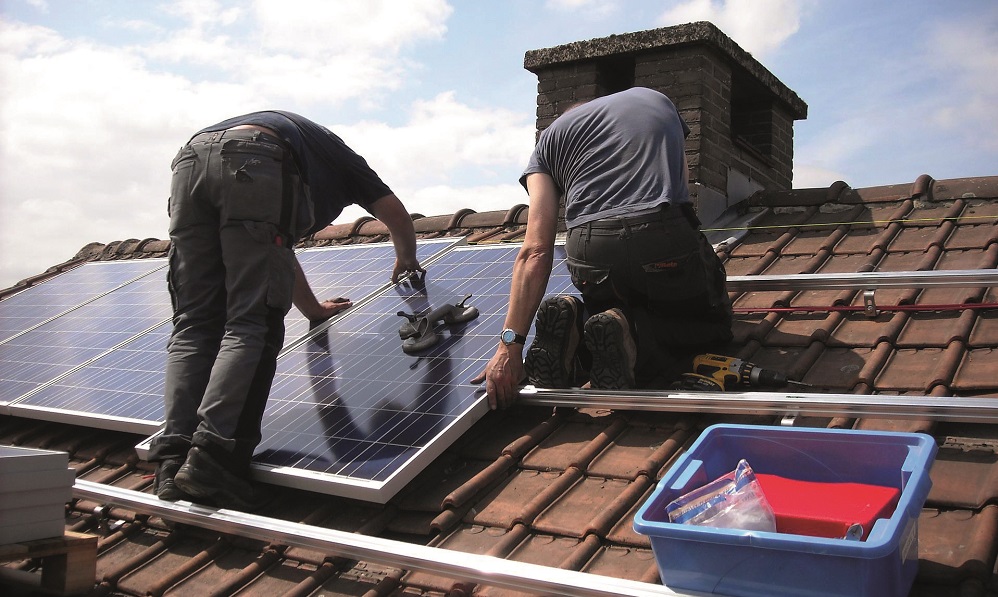
What you need to know about changes to Energy Performance Certificates
1.71k
What you need to know about changes to Energy Performance Certificates
What are the new EPC rules and how prepared are landlords? By Handelsbanken
As part of the government’s efforts to reach net zero emissions by 2050, it has looked to tackle emissions across all sectors of the economy, including properties. The UK government hopes to steer property owners in England and Wales to make greener choices (Scotland has a separate system of rules and financial help), and part of this is to tighten standards around energy efficiency ratings. Britain’s housing stock is some of the oldest in Europe, so increasing the energy efficiency of homes and commercial buildings is particularly challenging.
Here is our guide to what is happening and how it might affect you.
What are MEES?
Legislation introduced in 2015 established Minimum Energy Efficiency Standards (MEES) for residential and commercial properties. Buildings must have a minimum EPC rating of E in order to be let.
Some exemptions to the MEES and Energy Performance Certificate (EPC – see below) requirements apply; listed or officially protected buildings for example, do not require an EPC if the owner can demonstrate meeting the requirements would alter it unacceptably. Listed property owners are still subject to MEES regulations, and must show how they have tried to comply with the listing limitations when seeking an exemption.
What is an EPC rating?
An Energy Performance Certificate (EPC) documents how energy efficient a property is. From A (most efficient) to G (least efficient).
The EPC rating indicates the costs associated with heating and lighting it, and is calculated by assessing things such as insulation, air-tightness, windows and heating systems. Property owners must provide an EPC before the property is marketed to buy or let.
What are the current requirements?
The new rules build on previous changes. From 1 April 2018 it became illegal to let properties, both domestic and commercial, on a new lease with an EPC rating lower than E. This was expanded in 2020 to cover existing privately-rented residential property. From 1 April 2023, MEES requirements will apply to all existing commercial leases.
The government is also taking a phased approach to exemptions from the MEES. Previously, domestic landlords could apply for an exemption if they showed meeting the requirements would involve a cost to them. In 2019 this changed, and exemptions could only be applied for where the cost of bringing a property up to EPC E would cost over £3,500, or the costs of improvements would take over seven years to pay back.
The latest government consultation includes proposals for raising the exemption cap to £10,000 per property.
How could requirements for non-domestic (commercial) properties change in the future?
The government set out its plans for the future trajectory for non-domestic MEES in its Energy White Paper, published in 2020, proposing commercial properties should meet EPC band B by 2030. It published a consultation paper in June 2021 on proposals for the implementation and enforcement of its EPC B plans.
The government proposed a phased approach to implementation, by introducing ‘compliance windows’.
The ‘compliance window’ will begin with the requirement for landlords to present a valid EPC. For EPC C, the government proposes that the compliance window should be 2025-2027, and for EPC B 2028-2030. As of August 2022, legislation is yet to be put forward.
How could the requirements for residential properties change in the future?
In January 2021 the government published its ideas for raising MEES for privately-rented residential properties. The proposals would require new domestic tenancies to be at least EPC C from 1 April 2025, and for all domestic tenancies to be at least EPC C by 1 April 2028.
A review of the system for assessing properties for EPC ratings is underway which will likely modernise the current system by more effectively taking into account new technologies such as heat pumps. The as-yet-unannounced changes are expected to come into force from 2025.
What support is available from the government?
At the moment there is little support available from the government for property owners in making their properties more energy effi cient, although Rishi Sunak did remove VAT (which was previously at 5%) on qualifying energy efficiency materials.
In March 2022, the government introduced £450m in funding for a new Boiler Upgrade Scheme for residential properties. Subsidies of up to £5,000 per household to cover cost and installation of a heat pump or biomass boiler are available through this scheme which also provides a £6,000 discount on the cost and installation of ground source heat pumps.
About Handelsbanken
Handelsbanken is a relationship bank with a decentralised way of working, a strong local presence due to a nationwide network of branches, and a long-term approach to customer relations. Handelsbanken specialises in providing personalised and competitive banking services to both businesses, individuals, and property investors, and offers wealth and investment management services through its UK subsidiary Handelsbanken Wealth & Asset Management. Each Handelsbanken branch operates as a small business enabling it to make decisions at a local level and provide a bespoke service. The focus is always on the need of the individual customer and not on the sale of specific products.
Rooted in community with a prudent approach and unique decentralised model, we’re well placed to make a difference to our customers and society. With a focus on long-term relationships we can help customers plan for success in a sustainable way
Would you like to experience the Handelsbanken difference?
Call the Clapham branch today on 0207 498 5022
Call the Clapham branch today on 0207 498 5022






